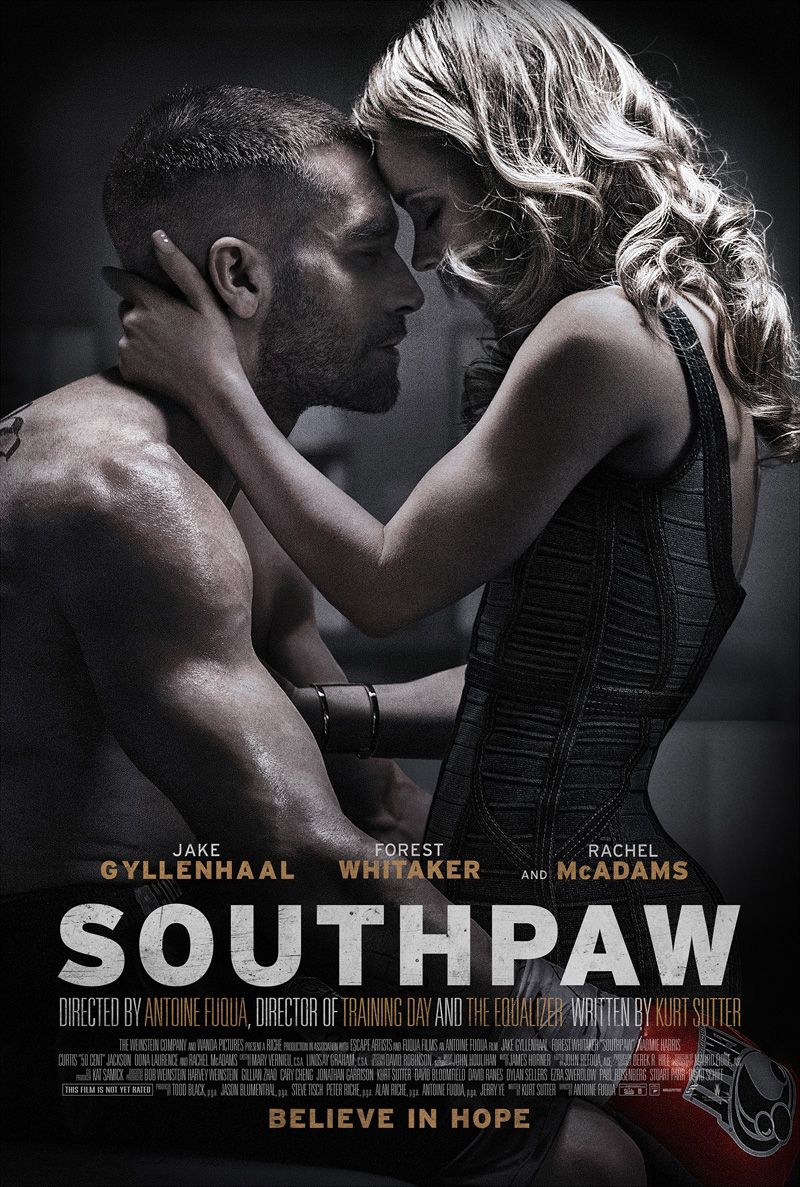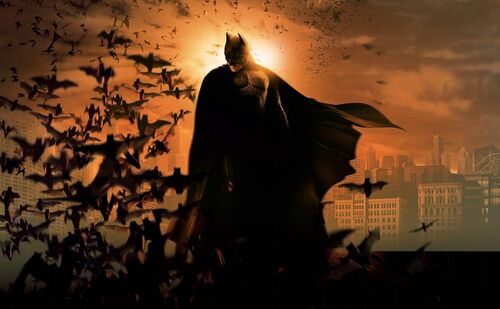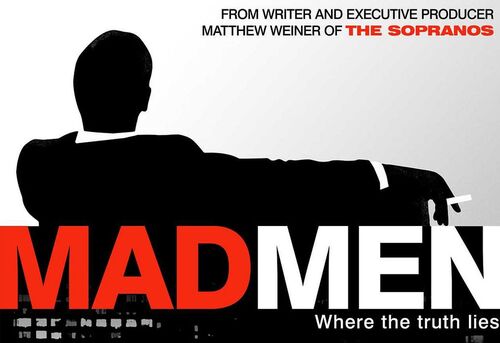
Southpaw - Less Repeating and More Exploring, Before Finding Familiar Turf
 As someone uninitiated in the boxing corner of the cinematic universe (I was too young to recall seeing Rocky), many, but not all, of the tropes passed over my head. The opening hour of the film uses the sport as an analogy rather than a driving mechanism for the plot, though that changes as it veers into familiar territory in its final act.
As someone uninitiated in the boxing corner of the cinematic universe (I was too young to recall seeing Rocky), many, but not all, of the tropes passed over my head. The opening hour of the film uses the sport as an analogy rather than a driving mechanism for the plot, though that changes as it veers into familiar territory in its final act.
I went in so blind to this film that the first act turn came as a complete shock; the departure of Rachel McAdams was both surprising and heart-breaking. Billy Hope, the protagonist of the film, is likable underneath his gritty exterior, but he and his wife Maureen's relationship is the architecture of Southpaw's heart. And it gets torn down so very early.
The relationship is so engaging, despite it being nothing groundbreaking, that McAdams' bit role equates to her character's overwhelming one in the story. Maureen holds her presence from start to finish, and her family's tragedy is the basis of some truly tear-inducing scenes.
Jake Gyllenhaal is, as always, profoundly engaging in the role, giving his absolute all and delivering a man who can't quite understand that the whole world isn't one giant boxing ring. Forgive me if boxing films of the past have engaged in this, but what truly stands out in Southpaw is the way in which the sport itself is an analogy, and the film itself is somewhat anti-masculine in its approach. Billy's flawed, macho-presence and generally angry existence is in many ways the cause of every tragedy his life is dealt.
Oona Laurence matches Gyllenhaal, and maybe even steals the show. Her performance as Billy's young daughter Leila is gravitating, the cause for many of the heart-rendering scenes. Child actors have such a hard time reaching the dramatic and emotional heights that are demanded of them, but Laurence excels in them. Leila is both mature and in need of nurturing, and her show of strength is almost as tragic as it is when her internal pain bleeds out. Her resonating performance goes a long way to keeping her mother's spirit on the edge of every frame.
Forest Whitaker plays Tick Wills, a trainer who refuses to train professional fighters (until he conveniently decides, very quickly, to train a professional fighter). Tick is a curious character, denying a drinking habit before revealing one moments later. He shows an unsociable demeanour that he tries to rub off on his trainees. But he's heartbroken when one of the kids suffers his own tragedy.
And while the boxing is astonishing to watch (at the intention of the director, it was made to appear as life-like as possible), its presence distracts from the very personal plot of the film prior to the curtain being raised. What follows beyond the midpoint is a combination of training montages mixed with standout scenes between Billy and his daughter. But the training is distracting because it conjures up all kinds of logical questions.
The film asks us to believe that a man who had an undefeated record completely forgets everything he knew about boxing, and never even knows a thing about defense, and requires Tick to train him like he would one of the kids at the gym. This is the clearest example in Southpaw of convenient and lazy storytelling, included for the sake of the plot but at the expense of the screenplay's credibility.
As a story about a man who loses himself at the loss of the one he loves most, Southpaw is powerful. Gyllenhaal as Billy is at the gates of hell for much of the run-time, ready to cross many lines in much a similar way to how 2012's Prisoners (also starring Gyllenhaal) did with Hugh Jackman's character. His fury drives the most fascinating theme in the film. Redemption and revenge are juggled frequently in the final act, but its standing against the aggression of ego-driven men is a far more compelling one.
Southpaw, much like Joy and Legend, is a kind of calling card. Albeit this time, it's for an actor that doesn't need it. Funnily enough, it proves a highlight for young Laurence's resume. Boxing films, and sport films in general, tend to follow a similar or identical structure. Southpaw refuses it for a time, but in the end it falls into the same box. Fortunately, it gets to sit at the top of the pile, among some of the better examples of a difficult genre.


